GOTHAM BOOKS
Published by Penguin Group (USA) Inc.
375 Hudson Street, New York, New York 10014, U.S.A.
Penguin Group (Canada), 90 Eglinton Avenue East, Suite 700, Toronto, Ontario M4P 2Y3, Canada (a division of Pearson Penguin Canada Inc.); Penguin Books Ltd, 80 Strand, London WC2R 0RL, England; Penguin Ireland, 25 St Stephens Green, Dublin 2, Ireland (a division of Penguin Books Ltd); Penguin Group (Australia), 250 Camberwell Road, Camberwell, Victoria 3124, Australia (a division of Pearson Australia Group Pty Ltd); Penguin Books India Pvt Ltd, 11 Community Centre, Panchsheel Park, New Delhi110 017, India; Penguin Group (NZ), 67 Apollo Drive, Rosedale, North Shore 0632, New Zealand (a division of Pearson New Zealand Ltd); Penguin Books (South Africa) (Pty) Ltd, 24 Sturdee Avenue, Rosebank, Johannesburg 2196, South Africa
Penguin Books Ltd, Registered Offices: 80 Strand, London WC2R 0RL, England
Published by Gotham Books, a member of Penguin Group (USA) Inc.
First printing, November 2009
Copyright 2009 by David T. Pelz
All rights reserved
Photo credits appear and constitute an extension of the copyright page.
Gotham Books and the skyscraper logo are trademarks of Penguin Group (USA) Inc.
LIBRARY OF CONGRESS CATALOGING-IN-PUBLICATION DATA
Pelz, Dave.
Dave Pelzs damage control : how to save up to five shots per round using all-new, scientifically proven techniques for playing out of trouble lies / by Dave Pelz, with Eddie Pelz and Joel Mendelman.
p. cm.
ISBN 978-1-101-66510-7
1. Swing (Golf) I. Pelz, Eddie. II. Mendelman, Joel. III. Title.
GV979.S9P45 2009
796.3523dc22 2009026390
Designed by BTD NYC
Without limiting the rights under copyright reserved above, no part of this publication may be reproduced, stored in or introduced into a retrieval system, or transmitted, in any form, or by any means (electronic, mechanical, photocopying, recording, or otherwise), without the prior written permission of both the copyright owner and the above publisher of this book.
The scanning, uploading, and distribution of this book via the Internet or via any other means without the permission of the publisher is illegal and punishable by law. Please purchase only authorized electronic editions, and do not participate in or encourage electronic piracy of copyrighted materials. Your support of the authors rights is appreciated.
While the author has made every effort to provide accurate telephone numbers and Internet addresses at the time of publication, neither the publisher nor the author assumes any responsibility for errors, or for changes that occur after publication. Further, the publisher does not have any control over and does not assume any responsibility for author or third-party Web sites or their content.
Version_1
For our future golfers.
May their games be free from disaster scores.
Introduction
G OLF IS IMPORTANT TO ME. Ive played it for more than fifty years, studied it for forty, conducted research on it for thirty-five, and taught it professionally for thirty-three. Just recently, however, Ive learned something newand very importantabout the game. In a research project (code named Disaster) at the Pelz Golf Institute that involved thousands of players, we uncovered several interesting facts about how golfers score:
 Golfers play two to five strokes below their handicap for most of each round.
Golfers play two to five strokes below their handicap for most of each round.
 They play badly (above their handicap) on a few disaster holes, bringing their scores back up to handicap level.
They play badly (above their handicap) on a few disaster holes, bringing their scores back up to handicap level.
 There is an easy way to avoid these disaster scores, and thus lower a golfers handicap.
There is an easy way to avoid these disaster scores, and thus lower a golfers handicap.
Working with the staff at the Institute, weve discovered a new and important way to eliminate disaster scores from your game. We call it Damage Control.
* * *
By way of an introduction to Damage Control, please consider the following six questions and answers:
Question 1: Whats the problem?
Answer 1: Golfers play well for most of the round, but then ruin their score with a few bad holes.
Think about your game. You play well most of the time, but consistently seem to mess up a few holes that ruin your score. This doesnt happen once or twice a year. You do it often, almost like its an unwritten law: You cant put together a complete 18-hole round without a disaster hole. Its just the way you play the game!
See if you recognize these circumstances. You:
 Play well (below your handicap) for most of each round (fourteen to seventeen holes)
Play well (below your handicap) for most of each round (fourteen to seventeen holes)
 Have a few disaster holes, with seriously high scores
Have a few disaster holes, with seriously high scores
 Are disappointed with your score and know youre capable of playing better
Are disappointed with your score and know youre capable of playing better
 Blame your disaster holes on errant shots that got into trouble
Blame your disaster holes on errant shots that got into trouble
 Believe you must practice more, improve your swing, and learn to avoid trouble if you want to improve your game
Believe you must practice more, improve your swing, and learn to avoid trouble if you want to improve your game
Research into disaster scoring has shown us the following:
 All amateurs hit multiple errant shots every round, but they manage to get away with most of them.
All amateurs hit multiple errant shots every round, but they manage to get away with most of them.
 Errant shots usually dont cause disaster scoresthey present opportunities for them.
Errant shots usually dont cause disaster scoresthey present opportunities for them.





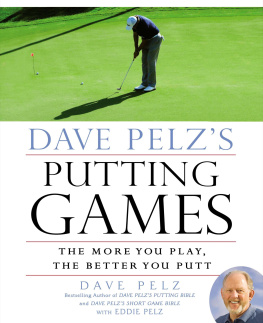

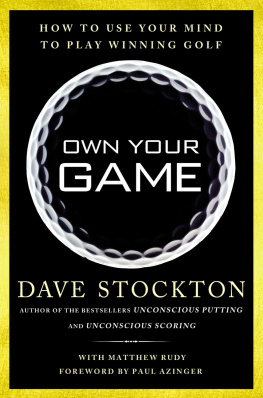
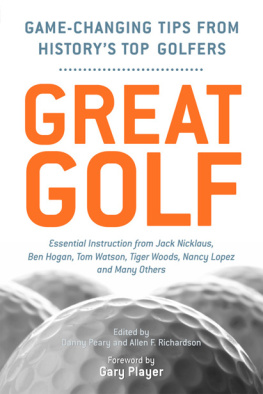




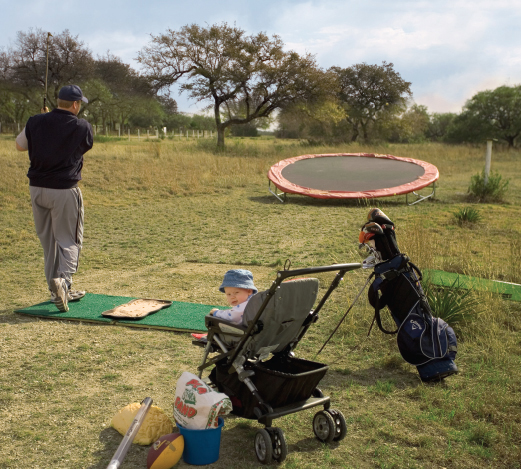

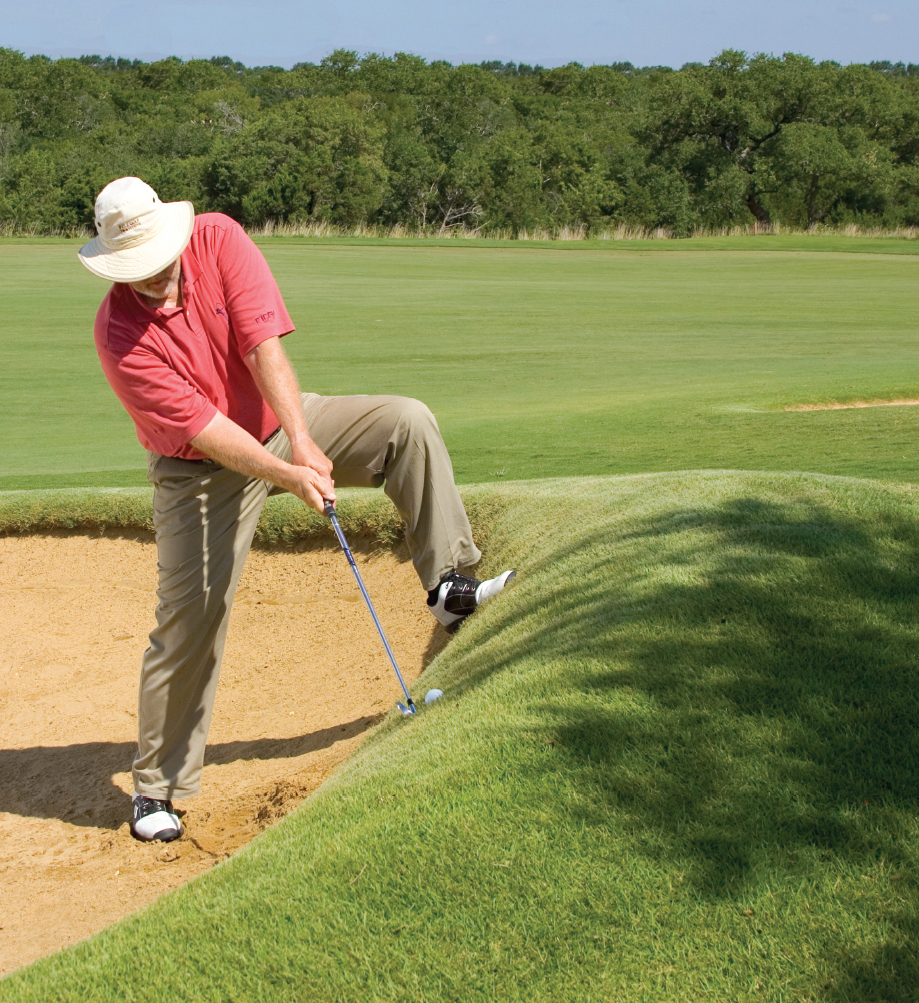

 Golfers play two to five strokes below their handicap for most of each round.
Golfers play two to five strokes below their handicap for most of each round.